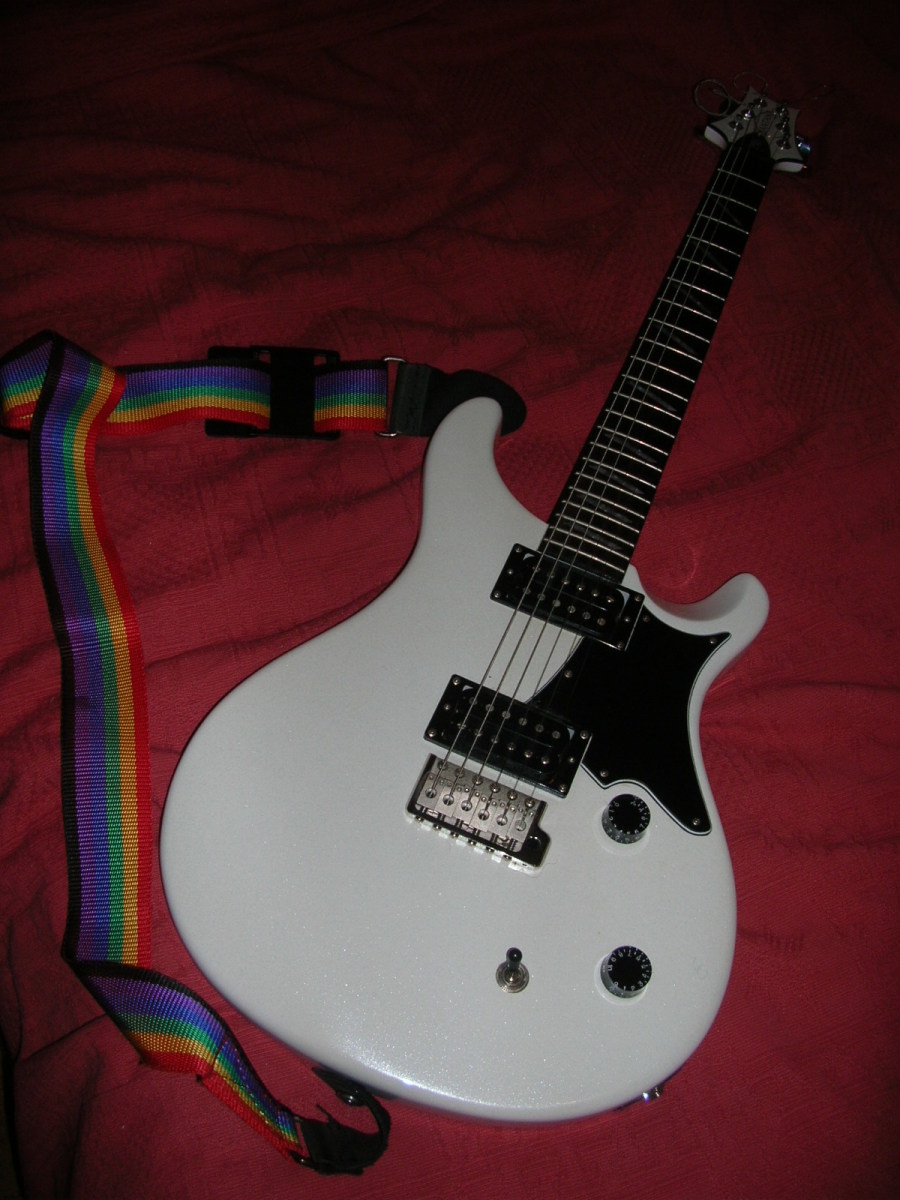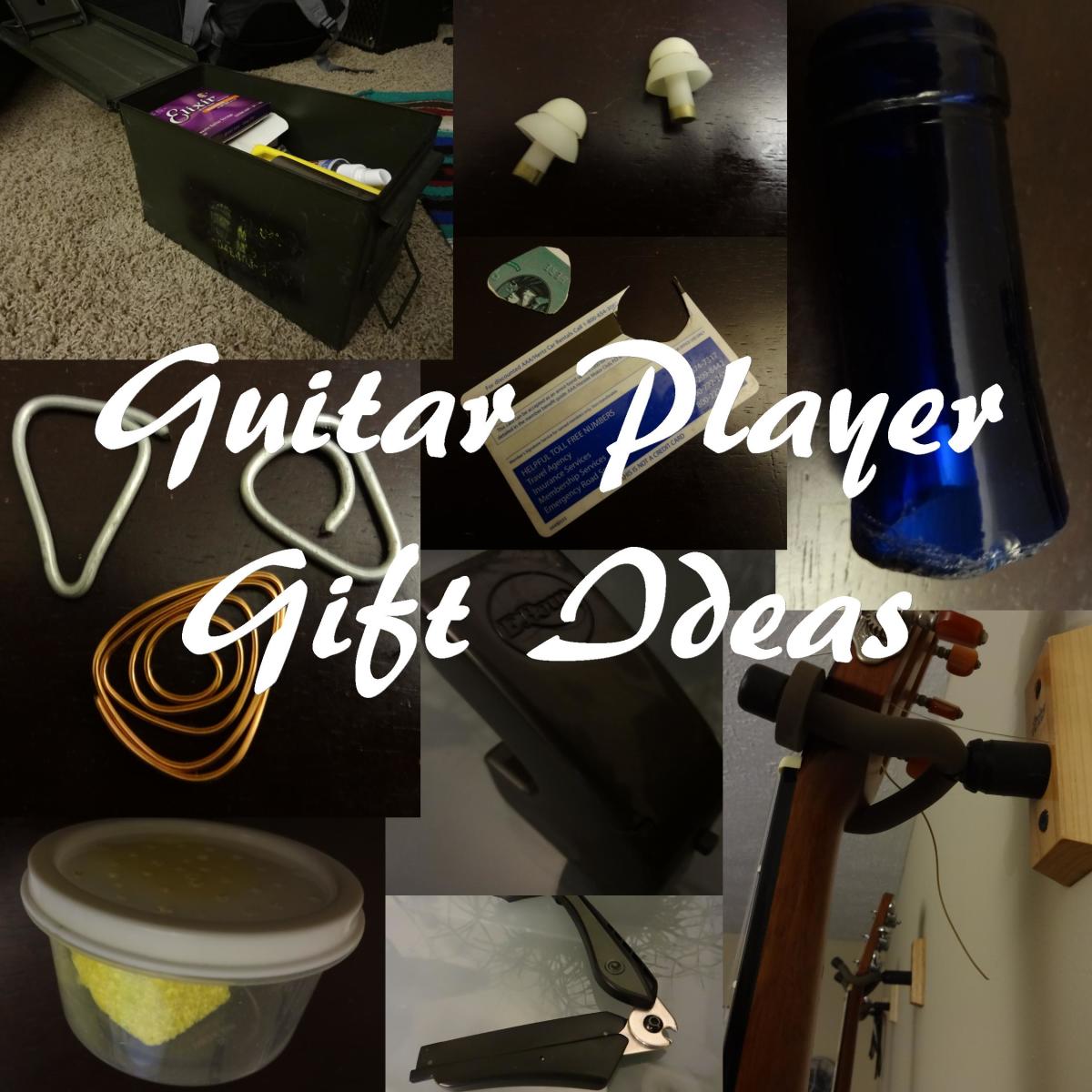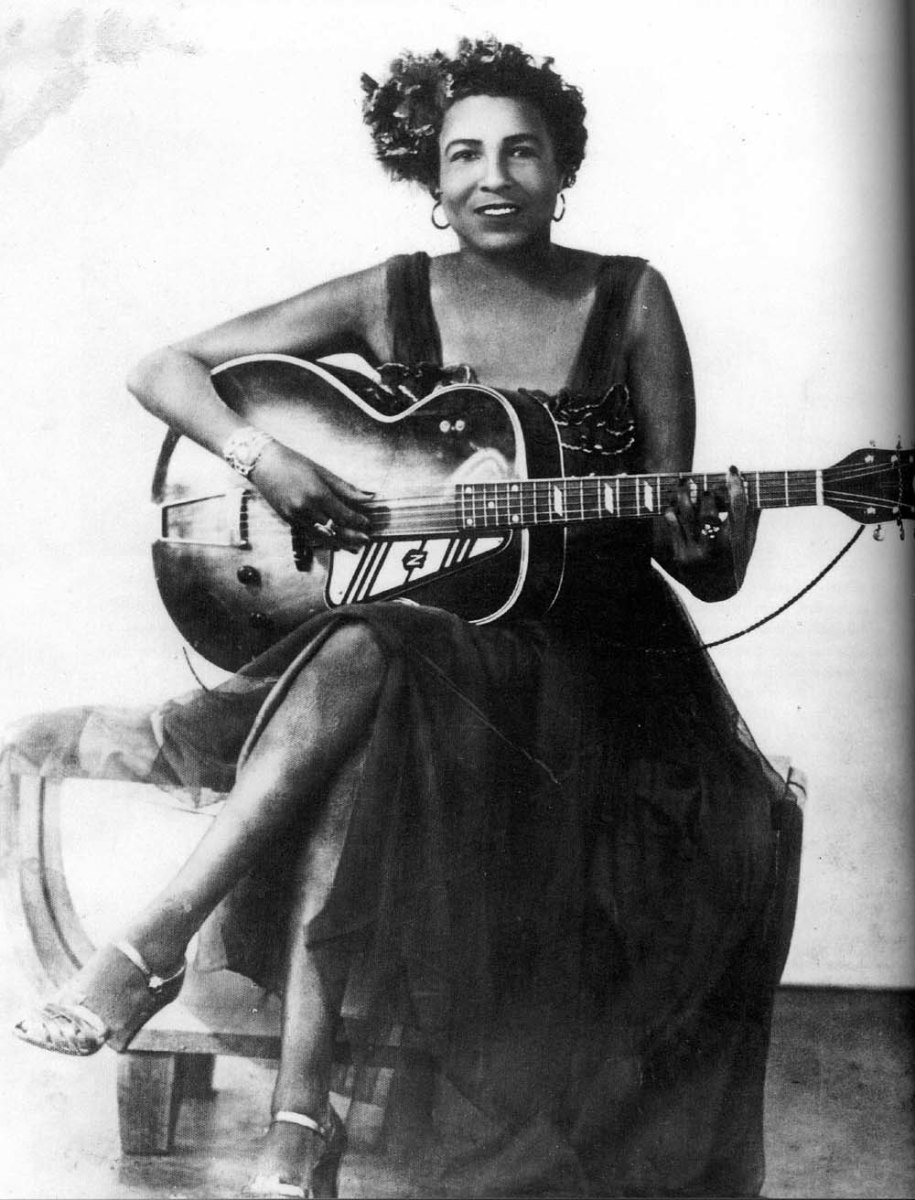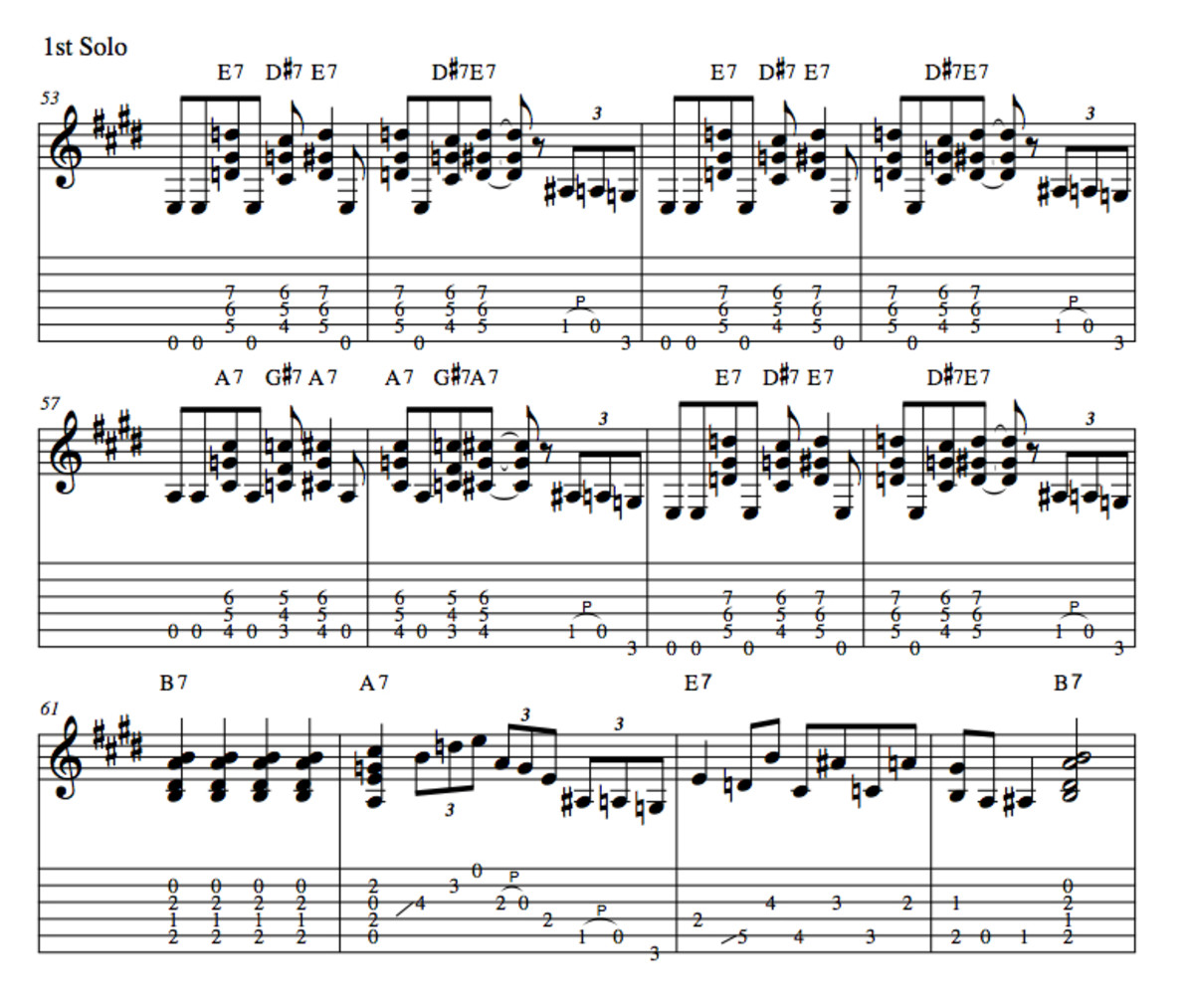From Guitar Player To Musician
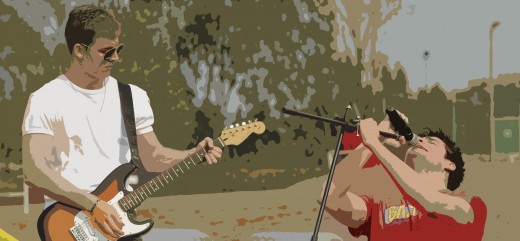
The Developmental Stages
Most of us start our musical journeys in a similar fashion. We usually start by covering other people's songs or, playing well known pieces as exercises to build our skills gradually. This encompasses the very reason most of us play an instrument in the first place; we all want to sound like someone else and eventually be able to do what they do. Of course, there are those that are forced into music by parents or teachers. These cases don't necessarily share this reasoning and are ultimately just sad. If you're one of those parents that forces their children to learn an instrument against their will, you sicken me and I hope you know that the sensible population of the world frowns upon you and your kind.
When we cover a piece of music, the stages are usually as follows:
- Play the right notes: Whether you get tabs, learn from a friend or learn by ear, this will generally be the first step to learning any song whether you do it explicitly or not
- Play those notes at the right time: This is generally where most beginners fall off the band-wagon because this timing isn't always as natural as we'd initially hoped. If you happen to be a drummer, this is probably your most crucial element since the band will rely on you to reinforce their own timing.
- Getting the perfect touch: Playing the right note at the right time can still sound absolutely horrible if it isn't executed properly. What I mean by this is that a note can be played in many different was. It can be loud or soft, sustained or choked, picked or plucked, bent, slid up, slid down, hammered on, pulled off etc. The perfect style will depend on the song, the genre, the artist and what that note is supposed to make the listener feel. This step takes the most time for beginners because they often don't know that they're neglecting it or they simply don't know what to do about it.
Once those few steps are covered and once they can be completed with ease across more than one style of music, the doors to mastery stand wide open.
What is the best?
In my opinion, trying to be the best guitar player is like dividing by zero since the result is undefined. (If you don't understand this reference, I apologize for me nerdy streaks and invite you to merely accept that dividing by zero is impossible.) I say this not because I am bitter that there are 9 year old children that have better technique than I do but, rather, because being a good musician is not something that is measured. John Mayer, a musical legend of our time, admits that trying to be the best will always lead to complications. At the end of the day you need to decide whether you want people to listen to your music and really feel it and connect with it or whether you want people to say: "Wow, he's fast" and never particularly want to listen to you again. I once attended a workshop presented by another virtuoso by the name of Guthrie Govan who stood on the stage at one point and said: "This isn't music... This is easy" while simultaneously shredding through arpeggios on his guitar. A musician's job is to capture human emotion in the sound of their instrument, not to impress people by the amount of notes they can play in 0.25 seconds.
John Mayer on his Berklee Experience
The Need for Musical Intuition
If you're going to use these techniques as tools to create your own music and properly express yourself, you have to back them up with music theory. However, music theory can turn art into academia very quickly. Academic Music Theory is useless to the performing musician if he/she cannot apply it to his instrument. The theory needs to come intuitively. It should get to a point where your soul absolutely yearns for a particular feeling and your hands know exactly what to do to achieve it. Internalizing the knowledge of scales and modes, chord theory, tension and release, songwriting concepts and other areas of music theory so that you can apply them anywhere and at anytime is what the musician should be after.
The Land of Advanced Techniques
Some people jump to this level before they have the basics down. This is a rookie error. I've seen so many of my own friends (mostly metal-heads) pick up an electric guitar and try to play solos before they even know what a chord is. The result is a guitar player that can play extremely quick pieces but has no rhythm or concept of timing - ultimately, not someone I'd want to listen to or play in a band with.
If you have the basics down though, moving onto these techniques and adding them to your repertoire of skills could make you an extremely proficient player. Notice I said "proficient player" and not "skilled musician". For a guitar player these techniques include:
- Speed picking
- Legato
- Sweep picking
- String Skipping
- Two-handed tapping
- etc.
The list goes on and some techniques are so unique to the player that uses them that they don't even have names. My rule of thumb for learning these techniques is to do so only if it is necessary for the music you're playing. Just explicitly doing flawless legato runs through your scales won't make you better at using them if you don't practice in the context of a piece of music. This generally means finding a piece of music that you like and learning the techniques used in it. Otherwise, you might not fully understand the use of the technique or you might pick up bad habits that render your technique useless.
Guthrie Himself on Technique and Musicality
Does it Sound Good?
This question often lies slightly beyond the playing of the instrument. This is something that comes with time and can very rarely be taught or categorized into right or wrong. It involves getting that perfect interaction between all your equipment and to get the tone that emphasizes your message perfectly. This could involve playing with your equalizer, using a different pickup or understanding that turning your gain knob to 11 isn't always the most metal option.
It's also important to realize that if we want to make good music, there will be other musicians or at least other instrumentation in the music as well. This means that it's not good enough for your guitar to sound amazing on its own, it needs to sound exceptional alongside the other instruments too. Perfecting your sound as a guitar player and as a member of a band will therefore be an ongoing and iterative process. Let your ears guide you to the sounds your heart wants to feel.
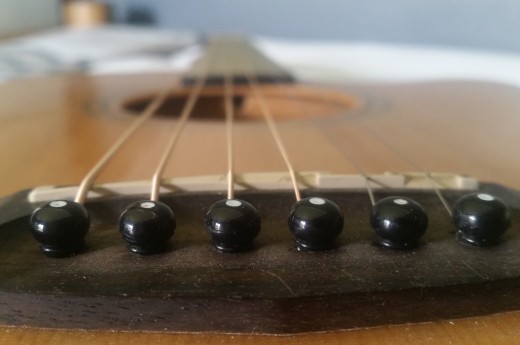
A Consolidation of the Elements
For most of us, merely playing another artist's music perfectly isn't close to enough. After all, we started our journeys wanting to do what they do. This means we want to write just as they did and we want to perform our original music to perfection. How does one do this? There's no simple answer to that question. This is where the true artist comes out and uses technique and emotion to express something they feel they need to, in their very own way. Which notes do you play to tell someone you love them or which chords will tell the world that your sadness knows no bounds? That is completely up to you and you'll know the answers when you're ready to express those emotions.

